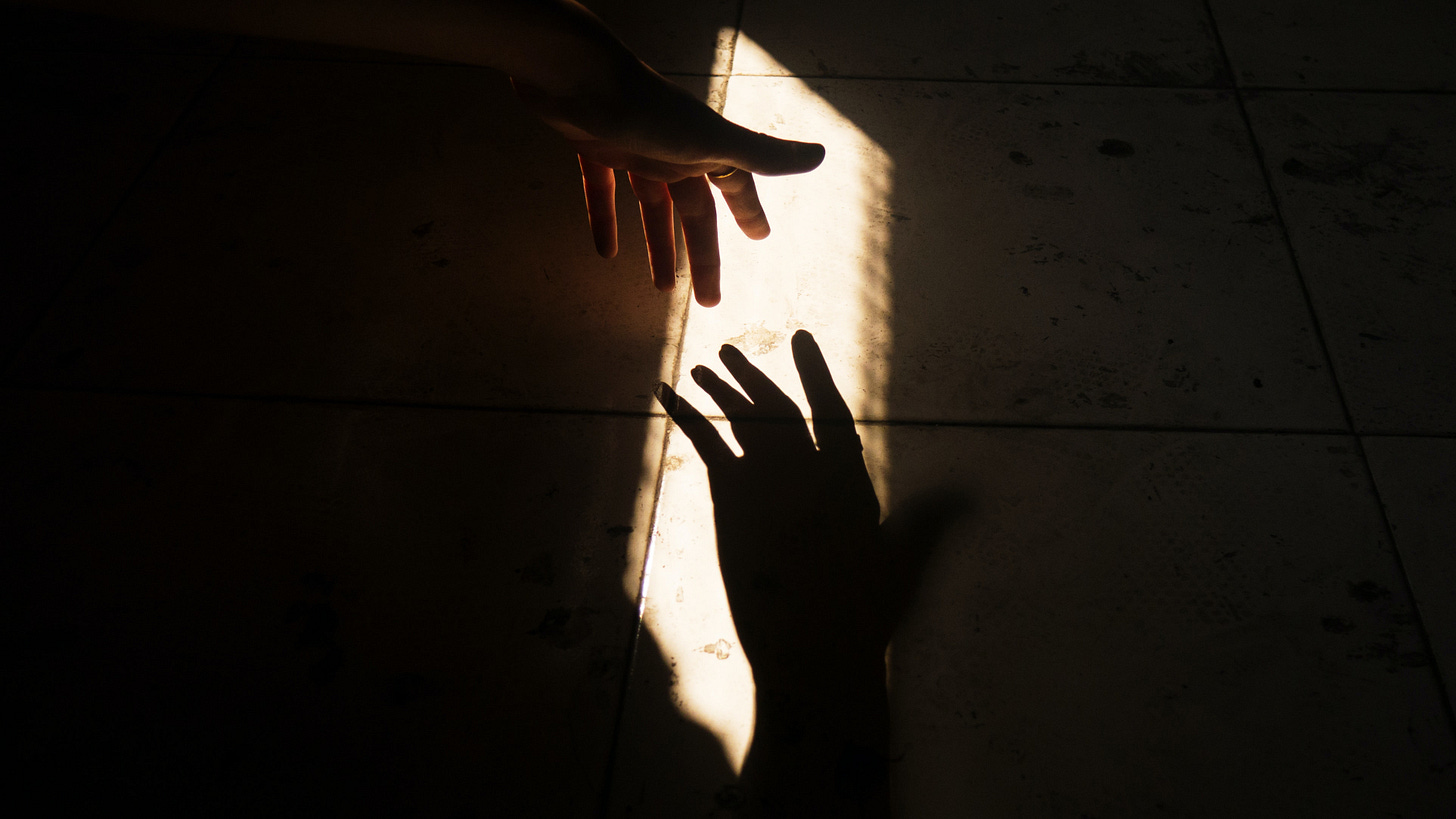stranger friend

There are no strangers here; Only friends you haven't yet met. (W.B.Yeats)
I've recently discovered a friend in someone with whom I would never have expected to form a connection. It's reminded me of the innumerable possibilities inherent in each strange unfolding day, here in this world of ours. Life is just so weird.
An article from Psyche recently landed in my inbox, exploring 'how to make new friends when you're busy with adulthood.' It's worth a read, for sure – but in a nutshell, here are the steps suggested to follow:
Assume that people like you
Initiate
Keep showing up
Get vulnerable
Assume that people like you? This isn't always as easy as it sounds. We know all our own flaws and foibles, and most people carry around a strong dose of self-doubt – in a small flask, to be swigged at intervals. Initiate and keep showing up? Again, not so easy to follow through, when you don't know - can't know - what someone else makes of you really. And get vulnerable? The trickiest step of them all, as it invites the possibility of real pain should the personal exposure not be met in kind.
All of these steps involve risk – the required ingredient when one meets a stranger. It is essentially about journeying with another soul into an unknown space. How one travels can make all the difference: does one pack up neatly, prepare an itinerary, purchase insurance, arrive at the station early, and snap photos on one's phone at every scenic moment? Or does one wander barefoot through the landscape without a map, piccolo at the ready in one's knapsack, greeting strangers and asking questions and stopping every now and again to lay down and rest? Does the journey offer the space to get lost? Does it inspire one to be found?
In A Field Guide to Getting Lost, Rebecca Solnit writes
Lost really has two disparate meanings. Losing things is about the familiar falling away, getting lost is about the unfamiliar appearing.... Either way, there is a loss of control.
Finding friends demands that we do indeed get lost, and lose control of the outcome – which may very well mean bumping up against someone else's sharp edges and getting smacked back. Finding friends asks that we venture into the unknown, and surrender the right to certainty. The process can be frightening, or it can be playful – a difference that depends entirely upon one's attitude. And attitude requires constant maintenance; we all too easily slip into our habitual guard, our tendency to see others as other. Yet when we shift our attention to one of playfulness, we realise that there is no such thing as other: it's all just us, in the yard together, some running, some dancing, some skipping. Some fighting. Some lingering at the outskirts, watching. Some friends you haven't yet met.
And how does all this relate to Unpsychology? Our upcoming issue invites readers to consider
how things can be different in the here-and-now, and not just in some utopian or dystopian future.... the relational now is a difficult place to find ourselves in, yet only out of the spaces between the people, places and multispecies companions will emerge responses that will, in turn, take us into the foggy time we call our future.
Relationship in all its forms – friendship included – takes us from the here-and-now of connection with another being, into a future which may bring us joy, or suffering, or more probably both in some amounts. We're complex and sticky and messy, we alive-folk – so friendship must navigate the peculiar frontier of individual character and the invisibile shores of personal boundaries. It involves what Donna Haraway calls 'staying with the trouble.' She writes:
We – all of us on Terra – live in disturbing times, troubling and turbid times. The task is to become capable, with each other in all of our bumptious kinds, of response.... staying with the trouble requires learning to be truly present, not as a vanishing pivot between awful or edenic pasts and apocalyptic or salvific futures, but as mortal critters entwined in myriad unfinished configurations of places, times, matters, meanings.
We live in troubling times indeed, and we need each other more than ever. Our friendships sustain us, and inspire us, and keep us from despair. They nurture our creative responses and bring us the sweet relief of laughter.
Conversation with my new friend has led me to think about activism – about what it means to be an activist. Need it be as beligerent as waving a placard and shouting out slogans? Need it be as dramatic as staging a protest in an art museum? Or as ironic as knit bombing and feminist embroidery? These are valid expressions, to be sure, but I also hold a healthy respect for the everyday activism of picking up a piece of trash or helping move a pram up some steps. I would include making friends as a form of activism: it makes the point that we are not alone. Most significantly, it engenders real change by impacting upon one's ordinary life and helping to build community.
Anthea Lawson explores the subject of activism in her excellent book The Entangled Activist. She points out that
our mental structures make it hard to see 'inner work' not simply as a tool to improve our own interpersonal health but to do so as an inextricable part of the health of the system we are trying to change.
Inner work means learning to see the world with compassion, not condemning it, nor the people in it. Venturing into friendship requires that we permit both ourselves and our friends to hold sometimes serious imperfections. We love them all the same, because we understand that ultimately we are all in the playground together.
And yes, once more: there are no strangers here.




